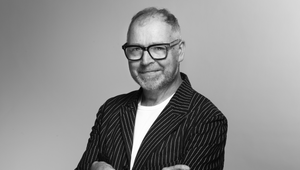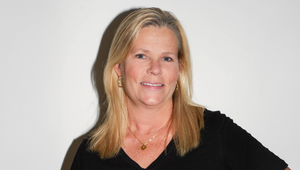
Bossing It: Richard Brett on How Having a Good Team Makes You a Better Leader

Richard is an experienced leader in marketing communications, corporate communications and communications agency management.
As CEO of Ogilvy PR & Health, Richard has worked across clients to develop strategy and campaigns for clients such as eBay, IKEA, Microsoft, Netflix, Ford and KFC. Richard was named CommsCon’s Leader of the Year 2019.
Previously, Richard was Group Managing Director, Brand Marketing at Ogilvy Public Relations Australia, which included leading Pulse Communications. Before working in Australia, he was managing director of Shine Communications in London.
Prior to this, Richard joined Samsonite in 2006 as global director of communications, and then was appointed VP, global marketing communications in 2007 where Richard was responsible for all communications strategy and implementation across all channels in all global markets. Before joining Samsonite Richard spent a decade at leading global communications agency Ketchum, leaving as London office strategy board director in 2006.
Richard has an MBA in Management from Imperial College London. Richard touches on all things leadership...
LBB> What was your first experience of leadership?
Richard> When I was 25, I was promoted and put in charge of a team of three at the agency I worked for. My role involved consulting clients on their campaigns, strategy, tactics and leading the team.
LBB> How did you figure out what kind of leader you wanted to be – or what kind of leader you didn’t want to be?
Richard> When I started out in my career, I worked for some terrible bosses. By ‘terrible’ I mean that they were either leading by fear or being out of touch and disconnected from the work. I quickly learnt from those experiences that I needed to work for someone who had two main traits. First, someone who knew the craft and was therefore knowledgeable and able to give good counsel. But second and just as important, they also needed to be a decent human being. This meant being pleasant to deal with, able to have fun, had empathy, secure in their sense of self, and could take advice. I have taken these two pillars as being critical to my own leadership.
LBB> What experience or moment gave you your biggest lesson in leadership?
Richard> In 2006, I was appointed as a global marketing communications lead for a multinational. We had to roll out a globally aligned communications strategy which the company had never done before, which took budget, and the ability to make decisions away from local markets. This process taught me a great deal about the power of empathy. It also showed me how to engage and connect with different cultures, and to really listen as we built global campaigns. I learned along the way how to get the best out of people, and while setting a direction and a strategy is important, so is discussing, listening, and taking those involved on a journey to ensure they feel part of the process.
LBB> Did you know you always wanted to take on a leadership role? If so, how did you work towards it and if not, when did you start realising that you had it in you?
Richard> Having been exposed to bad leadership early in my career, I realised that great leadership was critical to both people’s happiness and an organisation’s success. If people are being led by fear, or by incompetence, they won’t stay, and the organisation will falter. By showing empathy, having fun, and staying connected to the craft, I seemed to organically become a leader. Based on feedback people very much enjoyed the approach and working with me.
LBB> When it comes to ‘leadership’ as a skill, how much do you think is a natural part of personality, how much can be taught and learned?
Richard> I think it is both. I think you can naturally have a personality type that people can be drawn to as a leader, but there is so much experience, training and shaping that goes into your journey as a leader. Leadership is not doing, or telling - it is listening, giving a direction while ensuring others feel heard, and demonstrating through your own behaviours. Letting go and letting other people fly with space, is I think one of the hardest things to change as you become more senior in an organisation – and some people love the ‘do’ more than leading and that’s great too.
LBB> What are the aspects of leadership that you find most personally challenging? And how do you work through them?
Richard> I think many leaders tend to dive in and fix something if it is not working or is falling behind. But it is critical to be wary of this approach given that some people can find it incredibly demotivating. It’s important to be aware of people’s feelings and ensure they are part of any solution.
LBB> Have you ever felt like you've failed whilst in charge? How did you address the issue and what did you learn from it?
Richard> Leadership is ultimately decision making and acting on principles. Personally, I also believe that an organisation’s culture should always come before an individual high performer. For instance, if the high performer is damaging your culture, action needs to be taken no matter how good they are. Similarly, culture should also come before revenue if a client is treating your people badly.
As a leader, deciding to put your culture first is incredibly liberating. But looking back, it’s but not something I always felt confident in doing as I began my leadership journey.
LBB> In terms of leadership and openness, what’s your approach there? Do you think it’s important to be transparent as possible in the service of being authentic? Or is there a value in being careful and considered?
Richard> I absolutely and passionately believe in transparency. The pandemic only served to reinforce its importance, with our approach to transparent and open communication incredibly well received. It reinforced how important the very act of communicating can be, even if you don’t not have all the answers, or have unwelcome news to share. It also showed how important it is to take your team on the journey with you when making difficult decisions. This allows people to question, discuss and feel heard, which in turn makes them feel safe, engaged, and connected.
LBB> As you developed your leadership skills did you have a mentor, if so, who were/are they and what have you learned? And on the flip side, do you mentor any aspiring leaders and how do you approach that relationship?
Richard> I believe having a mentor or a coach is critical. I have had a mentor for seven years and see her once a month. She has helped address any weaknesses as a leader and made me more self-aware. She also plays a really important role as a sounding board. It is true that leadership is lonely, so having a person outside of your workplace to discuss problems, challenges and things on your mind is wonderfully liberating.
LBB> It's been a really challenging year - and that's an understatement. How do you cope with the responsibility of leading a team through such difficult waters?
Richard> Leading the team through a pandemic taught me so much about leadership and I now feel able to deal with other challenges with more confidence. It taught me to take each day as it comes, that every crisis will pass, and that change is the only constant of leadership. It also showed me that change must be embraced to move the business forward.
LBB> This year has seen the industry confronted with its lack of action/progress on diversity and inclusion. As a leader how have you dealt with this?
Richard> As a gay man, this has also been very important to me. I was bullied at school because of my sexuality, and then faced homophobia from very senior individuals in a boardroom, so I see the importance of embracing different perspectives, backgrounds, and stories. Ensuring people feel safe means that people speak up - every voice in an organisation matters and a great idea can come from anyone. Great ideas and therefore great organisations come from diversity of thought. It is critical to workplace success.
At Ogilvy we are doing what we can in this space. We partner with organisations to offer internships to First Nations people and refugees. I am personally very proud of the fact that of 17 members of the Ogilvy PR leadership team, 11 are women and three are members of the LGBTQI+ community.
The business continues to do pro bono work supporting D&I causes, such as the recently launched Laz Simons Creative Cadetship. This honours a colleague who we tragically lost last year and gives opportunity to those who face barriers entering the industry.
LBB> How important is your company culture to the success of your business? And how have you managed to keep it alive with staff working remotely in 2020?
Richard> I believe that culture is the most important component of any organisation, especially in fast moving times. All organisations are now in a constant state of transformation, and we are seeing huge changes in the way marketing communications is delivered. To be successful in transformation means that every employee needs to be engaged, motivated and understand the changes that need to be made, and their role in making them.
LBB> What are the most useful resources you’ve found to help you along your leadership journey?
Richard> The most critical thing to good leadership is the team around you. My biggest focus is making sure that I have the most talented and happiest leadership team I can. When that is in place, the rest follows.
I am also a huge believer in curiosity. The challenge of leadership is that it can isolate you from the day-to-day workings of the industry you work in, so being approachable and connect with everyone in the company is important. Being curious about their day, their challenges and what they like and don’t like about the organisation is a great way to stay connected.
It also critical to be across trends in the industry. This is one of the reasons we started our Futures annual trend report, to ensure that our team and our clients are on top of the latest developments. I also always have a book on the go, as well as a podcast (the New York Times technology podcast Hard Fork is my current favourite). I also subscribe to various business focused titles such as The Economist which helps equip me with insights and information to advise clients.















